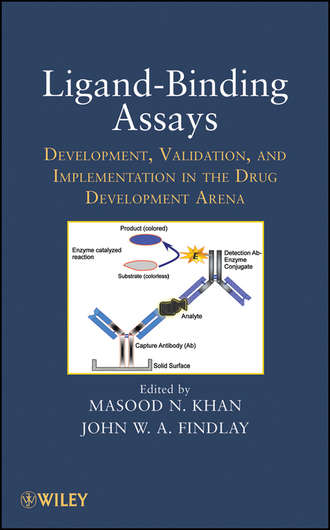
Полная версия
Ligand-Binding Assays. Development, Validation, and Implementation in the Drug Development Arena
A consolidated and comprehensive reference on ligand-binding assays Ligand-binding assays (LBAs) stand as the cornerstone of support for definition of the pharmaco-kinetics and toxicokinetics of macromolecules, an area of burgeoning interest in the pharmaceutical industry. Yet, outside of the Crystal City Conference proceedings, little guidance has been available for LBA validation, particularly for assays used to support macromolecule drug development. Ligand-Binding Assays: Development, Validation, and Implementation in the Drug Development Arena answers that growing need, serving as a reference text discussing critical aspects of the development, validation, and implementation of ligand-binding assays in the drug development field. Ligand-Binding Assays covers essential topics related to ligand-binding assays, from pharmacokinetic studies, the development of LBAs, assay validation, statistical LBA aspects, and regulatory aspects, to software for LBAs and robotics and other emerging methodologies for LBAs. Highlights include: A general discussion of challenges and proven approaches in the development of ligand-binding assays More detailed examination of characteristics of these assays when applied to support of pharmacokinetic and toxicokinetic studies of compounds at different stages in the discovery or development timeline A concise, but detailed, discussion of validation of ligand-binding assays for macromolecules A practical approach to «fit-for-purpose» validation of assays for biomarkers, those molecules receiving increased attention as potentially demonstrating that the target chosen in discovery is being modulated by the candidate therapeutic, both in nonclinical and clinical studies Written by a team of world-recognized authorities in the field, Ligand-Binding Assays provides key information to a broad range of practitioners, both in the pharmaceutical and allied industries and in related contract research organizations and academic laboratories and, perhaps, even in the field of diagnostics and clinical chemistry.


